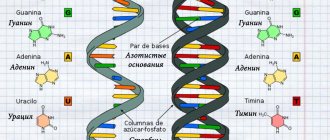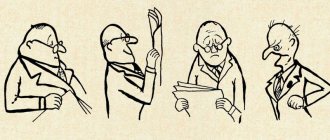Sometimes life gives us not very pleasant surprises. Finding yourself in a problematic situation from which you see no way out, a person often experiences strong negative experiences. If they are so severe or prolonged that they threaten mental health, then psychological defense mechanisms are activated. This is how our brain prevents the destructive effects of negative emotions.
Definition of the concept
Defense mechanisms are one of the most important concepts of psychoanalysis, which are ways of self-defense (namely, protecting one’s “I”), regulating negative impulses that emanate from a person’s consciousness. This happens under the influence of social rules and norms, which, one way or another, put pressure on the individual. The defense mechanism is designed to protect a person from possible experiences and anxieties that are caused by the discrepancy between social views and a person’s personal views. This term was first coined in 1894 by the famous psychologist Sigmund Freud.
Fantasizing.
Fantasizing is avoiding problems through fantasy, isolating oneself from reality: from daydreaming to reading literature and watching porn. We use it to transport ourselves from a world that threatens us in order to find comfort elsewhere.
Preview: Sigmund Freud in his office in Vienna with his daughter Anna, 1937. The photograph was taken by Princess Eugenie of Greece, daughter of Marie Bonaparte.
See also:
- Carl Jung: Tarot cards as a path to the unconscious
- Sigmund Freud Speaks: The Only Recording of the Voice of the Founder of Psychoanalysis (1938)
- “Imperfection is the only thing that makes us unique.” Brene Brown on shame and vulnerability
- Video interview with Carl Jung: why it is necessary to study the psyche, what a person cannot put up with and where is the source of evil
July 6, 2018
Basic properties of defense mechanisms
Defense mechanisms according to Freud have a number of features. It is worth familiarizing yourself with examples from real life in order to understand the nature of this phenomenon. Thus, protective mechanisms have the following properties:
- are a kind of self-deception, as they manifest themselves on an unconscious level;
- distort the perception of reality, which can be even more dangerous for a person than a real threat;
- represent the emotional side of the reaction to surrounding events;
- may arise based on the fear that negative impulses will become conscious.
Comparison table: Differences in views of Freud, Jung, Adler
| Freud | Jung | Adler |
| Driving forces of mental development | ||
| Driving forces of behavior | ||
| The innate essence of a person is determined by... | ||
| Sexuality | ||
| Aggressiveness | ||
| Personality structure | ||
| Understanding the unconscious process | ||
| Transfer | ||
| Man's ultimate goal | ||
| Dream interpretation |
crowding out
Considering Freud's defense mechanisms, first of all it is worth noting repression. This is a kind of basis with the help of which more complex mechanisms can subsequently be formed. Repression is the “forgetting” or “removing” from consciousness of those feelings and thoughts that cause psychological discomfort. At the same time, events that preceded the injury may disappear from memory.
It is worth noting that repression is not absolute. There is always a risk that memories of unpleasant events will burst out, and therefore you have to spend a huge amount of energy to suppress them. This can negatively affect a person's personal development. Moreover, even if the repression mechanism has worked, the stimulus may appear again in a dream or slip through in slips of the tongue.
Defense mechanisms according to Freud are reflected in real life. So, for example, a decent husband, due to his moral principles, does not allow the possibility of cheating on his wife. He does his best to repress such thoughts and fantasies. Nevertheless, it is possible that in a dream he takes part in pleasures with a stranger.
Projection
In stressful situations, defense mechanisms almost always come into play. According to Freud, projection comes in second place. Its meaning is that the individual tries to transfer his thoughts, feelings and life circumstances to other people. Thus, he relieves himself of all blame and responsibility for his own failures and troubles. An example would be a student or student who has not prepared for an exam. He tries to justify his bad grade by a biased attitude on the part of the teacher. If we talk about athletes, they often blame the poor quality of sports equipment, the playing field or dishonest refereeing for their defeat.
Theory of psychosexual development according to Sigmund Freud
| Stage name | Age | Description | Developed personality traits |
| 1) Oral stage | From birth to one and a half years | The source of pleasure is actions that require the participation of the mouth, lips, and tongue. Eating and biting are the prototype for many later emerging characteristics. |
|
| 2) Anal stage . | From one and a half to 3 years | The source of pleasure is the anal area. Accustoming to neatness. The means of realizing freedom is refusing to defecate when parents want it. | Anal retention character: love of order and stubbornness. |
| 3) Phallic stage | From 3 to 6 years | The source of organic satisfaction is the genitals (penis or clitoris). By the age of 5, a boy has an Oedipus complex, a girl has an Electra complex. | 1) Male phallic character : excessive vanity, impulsiveness, self-confidence. 2) Female phallic character : constant desire for superiority over men. 3) Predilection for phallic symbols: fast cars and skyscrapers. |
| 4) Latent stage | From 6 years to the onset of puberty (12 years). | Sexual feelings are minimally expressed. Outwardly, boys and girls do not show interest in each other. | Attention is focused on developing interests and skills in contact with peers. Sociability and hard work are developed. |
| 4) Genital stage . | From puberty to adulthood. | The source of sexual pleasure is the genitals. Sexual pleasure moves from oneself to another. | If there were no problems and fixations in the early stages of psychosexual development, then - genital character : maturity, good adaptability, ability to love and be loved; the ability to sublimate - directing sexual forces to achieve creative and productive goals. Mature heterosexual relationships are formed. |
Substitution
When considering examples of psychological defenses, one cannot ignore substitution. Its mechanism is to redirect attention from the threatening object to another object. The most striking example of this mechanism is a child punished by his parents for a prank. Unable to answer them, he takes out his anger on his younger brother or sister by kicking him or breaking toys.
The replacement reaction is characteristic not only of children, but also of many adults. For example, employees are often attacked and criticized by management. The fear of losing their job stops them from responding to their bosses. However, when they come home, they can take out their aggression on their family members.
It is worth noting that some individuals implement the replacement mechanism in a very unique way. Being weak by nature, they cannot take out their aggression on a stranger, and therefore begin to suppress themselves. As a result, a person suppresses himself emotionally, engaging in self-criticism and self-flagellation.
Rationalization
Psychological defense as a way of overcoming stress can manifest itself in the form of rationalization. This is a deliberate distortion of reality in order to maintain a high level of self-esteem. There is a complex system of argumentation that is designed to justify irrational behavior. One of the most striking examples of such a mechanism can be found in Aesop's fables. He describes a fox who cannot reach the branch with grapes. To justify her failure, she claims that the fruits are not yet ripe.
Similar examples can be found in everyday life. For example, a woman does not always reciprocate a man’s attention and courtship. Not wanting to accept this fact, a man may convince himself of her unattractiveness or spread damaging rumors. Another situation is related to student life. So, for example, if an applicant fails to enter a certain faculty, he begins to convince himself and those around him that this profession is not at all interesting to him.
Reactive education
Freud's depth psychology also highlights such a mechanism as reactive formation. It is implemented at two levels:
- a negative or unacceptable impulse is suppressed;
- At the subconscious level, impulses of opposite content are formed.
Most often, such mechanisms take place in public life. Thus, pronounced sexual desire is considered extremely indecent in society. Thus, a woman who has a similar feature tries in every possible way to suppress it in herself. To earn a positive image in society, she can even act as an ardent fighter for morality and ethics. The same applies to men who strongly oppose homosexual relationships, but themselves secretly have similar inclinations.
Freud's Definitions
- “Chimney sweeping” or “talking cure” (Breuer & Freud, 1895).
- The art of interpretation with the aim of overcoming amnesia, filling in all gaps in memory (Freud, 1904, p. 8).
- The theory of unconscious mental processes (Freud, 1928, p. 215).
- A method by which transference is detected (Freud, 1905, p. 281).
- Not a trendless scientific study, but a therapeutic idea; its goal is not to prove something, but to change (Freud, 1909, p. 339).
- The method that destroys illusions (Freud, 1911)
- A method that allows you to remember, reproduce and process mental conflicts (Freud, 1914.P. 126 -136).
- A series of psychological concepts obtained in the same way, which are gradually combined into a new scientific discipline (Freud, 1923,
p. 211). - Sexual theory in which the Oedipus complex plays a central role (Freud, 1923, p. 223).
- A method in which child sexuality plays a significant role (Freud, 1926 pp. 233 - 247).
- A method of “correction” in relation to repression (Freud, 1926, p. 285).
- A branch of psychology is depth psychology or the psychology of the unconscious (Freud, 1933, pp. 170 -171).
- A method that should create “the most favorable psychological conditions for self-functions”: in this case, its task will be completed (Freud, 1938, p. 96)
Sublimation
Psychological defense mechanisms according to Freud also include sublimation. This mechanism allows a person to change his impulses and views so that they can be expressed in a form that is acceptable in society. In psychology, sublimation is considered as the healthiest and most correct defense mechanism. This is due to the fact that a person does not restrain himself in the manifestation of his impulses, but only changes the form of their presentation.
Freud, given the specifics of his theory, tended to pay special attention to the sublimation of sexual desire. It is with this phenomenon that he links the incredible rise of culture and science that occurred in Western Europe. If we project this mechanism onto modern reality, we can give the example of teenagers who can sublimate their unfulfilled sexual needs into sports achievements.
Despite the fact that many people hide it, quite often you can meet people with sadistic tendencies. Thus, individuals with such deviation may well become successful surgeons. Also, such fantasies can be sublimated into writing detective novels.
Theory of dual libidinal and aggressive drives
1) libidinal drives
2) aggressive drives (non-destructive forms of aggression).
Aggression is a certain EGO position that ensures self-preservation.
Later, S. Freud postulated a fundamental lifelong conflict between the death instinct (Thanatos) - the source of aggressive drive and the life instinct (Eros).
Libido is life force. Destrudo is the energy of the death instinct.
Sexuality and aggression are internally closely related to the developmental phases of infantile sexuality.
Anna Freud: Early deprivation, loss of an object or child abuse damage libidinal attachment. Then there is a manifestation of aggression.
- Psychosexuality
– as an instinctive attraction, affect, impulse, desire, motivational push that activates consciousness.
- Gender identity
is a psychological system that connects and integrates personal identity with biological sex. - The ego
is a psychic authority that synthesizes, organizes and harmonizes the personality.
- Superego
- a hypothetical mental system that functions to establish and maintain moral standards, desired goals and ideals. Promotes intrapsychic and interpersonal harmony and facilitates social adaptation (subject to optimal functioning).Functioning is experienced as an increase in self-esteem or a painful sense of guilt.
According to Freud, people are complex energy systems. Behavior is motivated (activated) by a single energy. A person has a limited amount of energy. The source of energy is the neurophysiological state of excitation. The goal of any form of behavior of an individual is to reduce the tension caused by the unpleasant accumulation of this energy. Thus, human motivation is completely based on the energy of excitement produced by bodily needs. Mental images of bodily needs, expressed in the form of desires, are called instincts .
Freud argued that all human activity (thinking, perception, memory and imagination) is determined by instincts. Freud recognized the existence of two groups of instincts: life instincts and death instincts.
The first group is life instincts
- under the general name
Eros
, includes all forces that serve the purpose of maintaining life and ensuring the reproduction of the species.
Freud considered sexual instincts – libido – to be the most essential for personality development .
The second group is the death instincts
– Thanatos – underlies all manifestations of cruelty, aggression, suicide and murder.
Psychosexual development is a biologically determined sequence that unfolds in an invariable order and is inherent in all people, regardless of their cultural level.
Social experience contributes to each stage in the form of its own attitudes, traits, and values.
Freud has a hypothesis about 4 successive stages of personality development: oral, anal, phallic, genital
(according to changing erogenous zones).
Freud notes the latent period
(between 6 and 7 years of age) and the onset of puberty. This is not a stage.
The first three stages of development cover the period from birth to 5 years.
Each stage has its own main source of satisfaction. Fixation at any stage leads to excessive accumulation of libido, which subsequently, in adulthood, can be expressed in the form of “residual” behavior (character traits, values, attitudes) associated with the psychosexual stage at which the fixation occurred.
Stages:
oral (0-18 months);
anal (18 months – 3 years);
phallic (3-6 years);
(latent period);
genital (12 years).
The type of character depends on the child's development at each of these stages.
The main mechanism of character formation is fixation (delay, stop or difficulties in development at a certain stage).
The explanation of the stages of psychosexual development is based on the premise that sexuality is given at birth and develops further, covering a number of biologically defined erogenous zones
, until reaching maturity.
In Freud's view, personality development passes through the following four stages: oral, anal, phallic and genital. The latent period is not a stage of psychosexual development. Freud assumed that in the process of psychosexual development, unresolved conflicts lead to the fixation and formation of certain types of character
. Adults with fixation in the anal-retentive stage become inflexible, boring, and obsessively neat.
Negation
Personal defense mechanisms according to Freud include such an element as denial. It consists in the fact that a person categorically refuses to acknowledge that a negative event has occurred. The most striking example is the reaction of a child to the death of a beloved pet. He refuses to acknowledge this loss, believing that the animal is still somewhere nearby. A similar example can be given in connection with the loss of a loved one. Refusal to accept the obvious can develop into a religious belief that the relative now lives in heaven or that his spirit is still present in the house.
Often the denial mechanism is triggered when it comes to health. Thus, feeling the symptoms of a particular disease, a person can simply ignore them, telling himself that this cannot happen to him. A similar reaction can be observed to an already confirmed diagnosis.
Auto-aggression: blaming yourself
Auto-aggression, or turning against oneself, is a very destructive defense mechanism. It is often characteristic of children experiencing difficult moments in their relationships with their parents. A person may have a hard time accepting that their parent is being dismissive or aggressive towards them, and instead assume that they are the bad ones. Self-blame, self-deprecation, self-harm, self-destruction through drugs or alcohol, and overindulgence in the dangerous aspects of extreme sports are all results of this mechanism.
Auto-aggression occurs most often when our survival or well-being depends on the external object that caused its appearance. But despite the many negative consequences of this process, from an emotional point of view it can be better tolerated than aggression directed at the original target: a parent, guardian or other important figure.
Psychology books worth reading
Sooner or later, any person begins to be interested in certain mechanisms of the work of the conscious and subconscious. The best way to get acquainted with the work of a psychologist such as Sigmund Freud. Books in which human psychology is best presented are:
- "Introduction to Psychoanalysis" is one of the most famous books, moreover, this work is considered the most significant in all of Freud's activities. Here are the main provisions that had a decisive influence on the further development of not only psychology and medicine, but also fiction.
- “The Interpretation of Dreams” is a monumental work that has become one of the most striking in the twentieth century. Here is the result of Freud's study of the unconscious part of consciousness, which controls human instincts, but is difficult to study. The symbolism of dreams is discussed here, which helps to understand the problems, desires and fears of the individual.
- The Psychopathology of Everyday Life is Freud's second monumental study. The book is relevant to this day, and therefore is key in the study of psychology. The main attention is paid to unconscious motives, which not only can act as incentives, but also often become the cause of psychological disorders.
- “I and It” is a kind of collection of the psychologist’s works, which can be considered the culmination of his work. It not only describes the basic principles of psychoanalysis, but also presents their sources and justifications.
- "Totem and Taboo" is a work in which Freud, drawing on his own research and theories, tries to uncover the problems of genesis. Thus, the author addresses the problem of culture, religion, morality, law and other aspects of social life.
- “Mass Psychology and Analysis of the Human Self” is a work in which Freud carried out fundamental work on the study of crowd behavior. The need of the masses for a leader is also explained.
- “Essays on the Psychology of Sexuality” is a collection in which the psychologist raises the most sensitive topics. From here you can learn about the nature and causes of intimate deviations, a tendency towards perversion, as well as sadism, homosexuality, etc.
It is worth noting that these are not all books on psychology that are worth reading. It is also important to study the work of other specialists who had a slightly different view of things than Freud.
A modern view of the problem of psychological defenses
S. Freud's teaching on the mechanisms of psychological defense had many followers. And at present, although with some reservations, it is recognized by representatives of all leading areas of psychology. The list of types of psychological defenses has been significantly expanded, including, for example, the following:
- compensation - replenishment of what is lacking in reality with products of the imagination, withdrawal into an imaginary world or passion for religious cults;
- exile of the role - removal of responsibility for what is happening;
- desacralization (according to A. Maslow) - a skeptical, or even contemptuous attitude towards social values and recognition of them as insignificant, which helps to get rid of the pressure of taboos and prohibitions;
- self-blame - accepting the role of a victim or blaming oneself for all troubles, which allows you not to deal with their real causes;
- going into virtual reality is one of the new ways of psychological defense, which helps limit contact with reality that does not bring satisfaction.
These are not all types of defenses that are found in various books and textbooks on psychology. But all of them - both those described by S. Freud and those identified by more modern psychologists - have two common features:
- are not realized by the subject, and therefore are not controlled;
- create an illusion that prevents a person from perceiving reality adequately.
Psychological defenses are self-deception. In certain cases and for a short time, it really helps a person come to terms with a reality that is traumatic to the psyche. But, as S. Freud noted, long-term use of defense mechanisms, especially if it concerns preference for one particular type, has a bad effect on the human psyche. He not only loses touch with reality, but also begins to experience problems of a neurotic nature.
The person himself is usually not aware of the effects of psychological defense and, most importantly, its causes, but the consequences of protective behavior may bother him. It is very difficult to regulate the action of these mechanisms on your own, so it is better to contact a qualified psychologist: a psychotherapist or psychoanalyst.
conclusions
Defense mechanisms according to Freud are a kind of unconscious reaction that is triggered in a stressful situation or in the face of a threat. Regardless of what type of barrier is triggered, in any case, we are talking about a significant expenditure of energy, which has an overwhelming effect on the ego. In addition, the more effective a particular mechanism turns out to be, the more energy it requires, and the more it distorts objective reality.
Given the unconscious nature of defensive reactions, not every person can control them. However, having noticed the effectiveness of a particular barrier, an individual can consciously resort to it in a stressful situation. You should not rely excessively on such a technique, because it can become a very fertile ground for the emergence of psychological problems.









